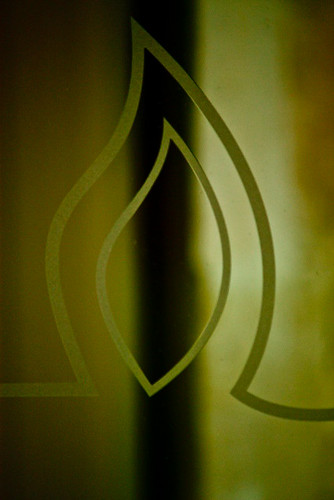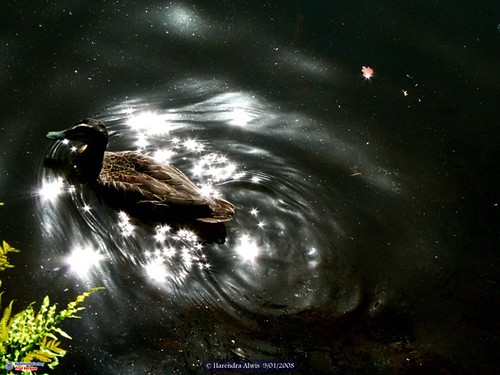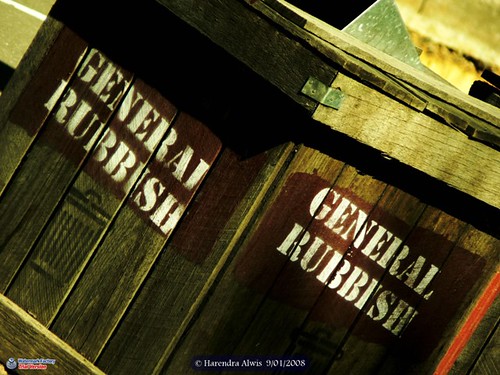Dear Godchild,
Being probably the first person apart from your parents, grandparents and uncle, to wish you on your very first birthday, is a great responsibility. It is the sort of thing that keeps Godfathers up well past bedtime; not out of obligation of course, but out of duty.
Today, you mark the first of many wonderful way points in your life. On this day, for years to come, we will celebrate the perfection of God's creation in you. It will be a yearly reminder to renew our faith in you and trust in God's plan for you; which is just another way of saying 'trust what life has in store for you'. Some may call it destiny, some may convince you that you are the architecht of your life and all its fortunes. One day, when you are just about old and wise enough, I will show you how they are both one and the same thing!
In time, you will be compared to flowers that bloom and wither away, or to stars that seem to last forever. You will tread on pebbles that have been around for eons and sit under the shade of trees that will outlast you by many generations. But in all of creation, there has never been another one of you in this universe and there will never be. You are unique in creation and you alone have the power and right to define how. Choose wisely and always choose with love.
We also celebrate in you, the will of life to endure and thrive, but that is a gift you share with even plants and animals. Perhaps, one day, you will also be lucky enough to become an instrument of life’s longing to manifest itself anew. That would be something worth praying for.
Life is more than you and I can comprehend, but I hope we will be able to remind each other of that every now and then. Never give up trying to understand life deeply, because to do so would be to loose sight of its very purpose. Life is your opportunity to partake of all that is magical and wonderful and your parents will strive harder than anyone can imagine, to put as much of that wonder and magic within reach of your fingertips. Despite their best efforts however, there will be times when life doesn't seem so wonderful to you, when you encounter difficult choices, pain and suffering, anger, hatred and perhaps even the threat of violence.
And with time (but I hope soon enough) you will learn to appreciate the seasons of life. Most days will be unmemorable, but there will be those that will wrap you in bliss and others that drown in sorrow. There will be times when you will languish as days idly pass you by and then hasten with purpose. Like the seasons in nature, these times will be inevitable, but they will roll on; sometimes with you in tow and at others with you taking the lead.
I wish you friends who will be for all seasons. You won't so much find them as be blessed with them. If you must have any desires, try to be a good friend that others can depend on at all times. Cherish those loved ones who walk through life with you, strengthen you and make you laugh. Never forsake them or feel obliged to put up with anyone who takes you for granted. Be faithful to those whose love sustains you; and love them all your heart.
In your grasp is the power of innocence and may it be yours for years to come. Innocence is not the same as naivety, nor will it make you vulnerable. It is rather a sign of persistent faith in all that is good and a reflection of the strength of your imagination and endurance of your dreams. Should the years ahead threaten to make you cynical, or pessimistic, look back and draw inspiration from the indomitable love that has made you possible. You will also be, as your parents and theirs have been, a sprout in the fountain of life. Preserve the purity of your innocence and be chastened by it. Wear kindness as a chain on your heart, and let gentleness, like bangles adorn your hands. Grace shall be your crown.
Today, the gift we are thankful for is your presence in our lives. In years to come, you will add more meaning and reason for celebration and more cause for joy. What we see today are merely the first rays of dawn breaking in the horizon as we wait for birdsongs to break through the morning mist and the glory of daylight to set in. The skies hold much promise. So, this prayer is my gift; that you, your parents, elders and teachers will have the wisdom and strength to be guided through this day, till we all lie down with the stars, to a peaceful dusk.
Always,
Your Godfather.
~


























